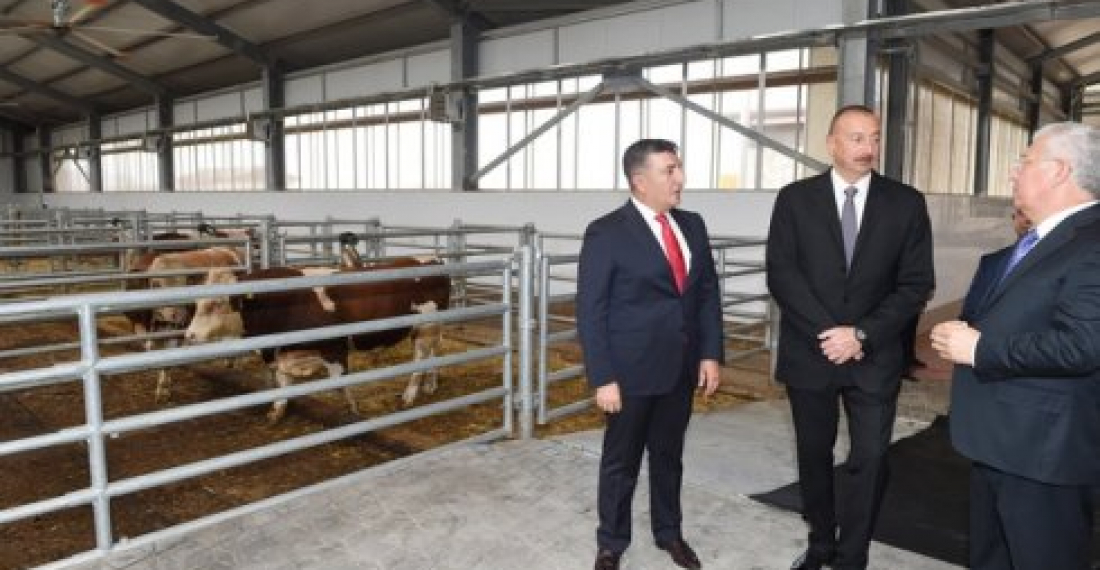President Ilham Aliyev of Azerbaijan emphasised the importance of agriculture for his country when he toured the northwest regions of the country over the weekend. Aliyev visited Samukh, Goygol, Gadabay and Shamkir districts, meeting with local officials and touring a number of municipal and industrial facilities.
During his trip the Azerbaijani President spoke on a number of occasions on the importance of agriculture for the future development of Azerbaijan.
Speaking in Goygol, President Aliyev said that agriculture was a top priority for the government.
"In recent years, a lot of work has been done in the field of agriculture. And in crop production, and in livestock, in general, in agriculture, growth is ensured. For six months of this year, agricultural exports increased by 40 percent. This became possible as a result of the work done. Currently, about 40 new agro-parks are being created. Of course, as a result of the activities of these agro-parks, we will increase production."
President Ilham Aliyev noted that new opportunities in the agricultural sector were helping to eliminate the problem of unemployment in the regions, adding:
"The traditional branches of agriculture are being restored and revived. Over the past two years, we have achieved almost a tenfold increase in cotton production. Now thousands, tens of thousands of people work and receive wages. We are restoring both tobacco growing and silkworm breeding. The export potential of our agricultural products is diverse because we have 9 climatic zones. We have fruits, vegetables, and tobacco, cotton, grapes, spirits, hazelnuts, almonds, tea, citrus, in short we have all. Simply, we must correctly use these natural opportunities, we use them and in recent years there has been a very great development in the field of agriculture. Restoring the traditional industries, we will create even greater potential."
source: commonspace.eu with agencies
photo: President Aliyev of Azerbaijan visiting an agricultural facility in the district of Goygol on 20 August 2017 (picture courtesy of the press service of the president of Azerbaijan)







